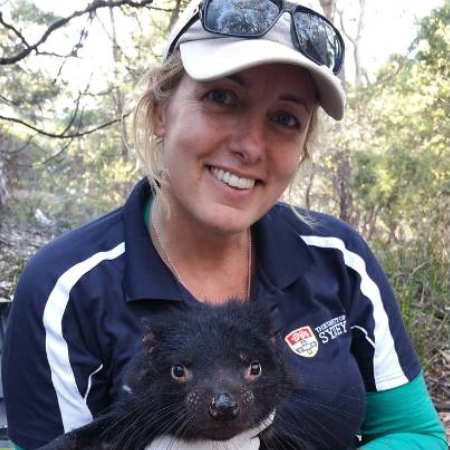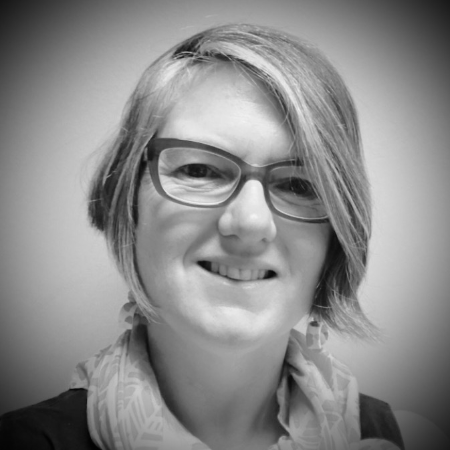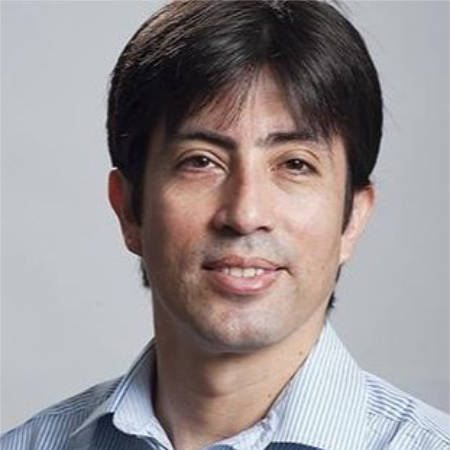Home | Abstracts | CoFest | Conduct | COVID-19 | Fellowships | Key Dates | Organizers | Program | Registration | Sponsors | Travel
Program
GCC2023 consists of the main meeting, interactive training, and a collaboration fest (CoFest). The main meeting and the training are interleaved on the same days with the CoFest following.
Schedule
Each day of the meeting, there will be three sessions, morning talks, mid-day training, and afternoon talks, with breaks and lunch in between. CoFest is largely a free-form event that will be organized on the spot.
Training events will consist of five parallel tracks, each session being 2.5 hours long (with a 20 minute tea break after 1h30m). More details for each of the trainings will be provided as we approach the conference.
Below you can see the program schedule at a glance while the list of talks and accompanying abstracts are available in this document.
| Day | Time | Event |
|---|---|---|
| Monday, July 10 | 9:00 - 9:20 | Welcome and conference opening |
| 9:20 - 10:20 | Keynote 1: Carolyn Hogg To infinity and beyond – combining genomics and cloud technology to save our species | |
| 10:20 - 11:20 | Posters & Demos session 1 | |
| 11:20 - 12:30 | Talks session 1: New Galaxy Features | |
| 13:30 - 16:20 | Hands-on training 1 - Machine Learning - Workflow Development - Galaxy + R - Intro to Genomics - Single Cell Transcriptomics | |
| 16:25 - 17:20 | Talks session 2: Success Stories with Galaxy | |
| 17:30 - 18:30 | BOFs | |
| Tuesday, July 11 | 9:00 - 10:00 | Talks session 3: Galaxy Education |
| 10:00 - 11:10 | Posters & Demos session 2 | |
| 11:10 - 11:35 | Platinum sponsor talk: BizData | |
| 11:35 - 11:45 | Tribute to Simon Gladman | |
| 11:45 - 12:30 | Community update talk | |
| 13:30 - 16:20 | Hands-on training 2 - Tool Development - Admin Roundtable - Galaxy Tips and Tricks - Genome Annotation - Structural Biology and Alphafold | |
| 16:25 - 17:30 | Talks session 4: New Communities | |
| 17:30 - 18:30 | BOFs | |
| Wednesday, July 12 | 9:00 - 9:20 | Sign-up and organization of the koala sanctuary visit |
| 9:20 - 10:20 | Keynote 2: Kate Michie Alphafold2 and the Age of Deep Learning : Recent advances in structural biology | |
| 10:20 - 11:20 | Posters & Demos session 3 | |
| 11:20 - 12:30 | Talks session 5: New Galaxy Tooling | |
| 13:30 - 17:30 | Optional visit a koala sanctuary | |
| 18:00 - 21:00 | Conference dinner | |
| Thursday, July 13 | 9:00 - 9:10 | GCC2023 fellowship recipients |
| 9:10 - 10:10 | Keynote 3: Roberto Barrero Improving plant industry access to new genetics through faster and more accurate diagnostics of plant viruses and viroids | |
| 10:10 - 11:20 | Talks session 6: Galaxy UI/UX | |
| 11:20 - 12:30 | Talks session 7: Playing Nice with Everyone | |
| 13:30 - 16:20 | Hands-on training 3 - Contributing to the GTN - Dev Small Groups - Microbiology - Genome Assembly with VGP - Galaxy for Human Genetics | |
| 16:25 - 17:10 | Talks session 8: Looking Ahead | |
| 17:10 - 17:20 | Conference closing | |
| 17:30 - 18:30 | BOFs | |
| Friday - Sunday | 09:00 - 17:00 | CoFest |
Keynote speakers
GCC2023 is excited to present three keynote speakers that collectively will showcase how Galaxy is used to address challenges in biodiversity, biosecurity and structural biology.
BioDiversity
 | Dr. Carolyn Hogg, with a talk titled To infinity and beyond – combining genomics and cloud technology to save our species Professor Australasian Wildlife Genomics Group School of Life and Environmental Sciences University of Sydney |
I have been working on the conservation of threatened species for over twenty-five years both in Australia and overseas. I am currently a Professor for the Australasian Wildlife Genomics Group in the Faculty of Science. I have been working with the Save the Tasmanian Devil Program for the past ten years; in addition to other species such as orange-bellied parrots, koalas, bilbies, and woylies. Working closely with both my academic and conservation management partners my vision is to create a conservation legacy for Australia by changing the way we integrate science, management and policy; to proactively promote species’ resilience in the face of a changing world. We are achieving this by developing better tools and technologies to integrate molecular genetics into real-time conservation management decisions.
Structural Biology
 | Dr. Kate Michie, with a talk titled Alphafold2 and the Age of Deep Learning : Recent advances in structural biology Senior Lecturer Structural Biology Facility Mark Wainwright Analytical Centre University of New South Wales |
Dr. Michie is a Senior Lecturer at the University of New South Wales (in BABS and the Structural Biology Facility MWAC)with over two decades of expertise in Protein Structural Biology. She has completed her doctoral degree from the University of Sydney and received prestigious fellowships from L'Oréal-UNESCO and Marie Curie to continue her research at the Laboratory of Molecular Biology in Cambridge UK (2006-2010). Her research primarily focuses on molecular biology of filament forming proteins, with a particular interest in structural biology. Dr Michie has published papers in top scientific journals, including Nature, Molecular Cell and PNAS, and has made significant contributions to the field of bacterial cell division, in the field of filament forming proteins and more recently in light harvesting proteins from Algae.
Dr. Michie has also been involved in various community roles within the field of structural biology. She established the Structural Biology Facility at UNSW in 2019, which provides state-of-the-art resources for researchers in the field. She is the coordinator for the Greater Sydney Collaborative Access Program for MX beamtime at the Australian Synchrotron, the President of the Sydney Protein Group, and established the Computational Structural Biology Workgroup at UNSW, bringing together researchers across campus who use computational structural biology resources.
Aside from her research, Dr. Michie is also uses Alphafold2 extensively, which she has helped set up in the cloud at UNSW within 2 weeks of the code being publicly released. She has worked closely with a wide range of researchers to teach them how to use this powerful tool to advance their research, and has already had a number of successful collaborative grants awarded for projects impacted by Alphafold2. Dr Michie's drive and leadership in this area have been instrumental in providing UNSW researchers with access to the computing resources they need to stay competitive on a world stage.
BioDiversity
 | Associate Professor Roberto Barrero Gumiel, with a talk titled Improving plant industry access to new genetics through faster and more accurate diagnostics of plant viruses and viroids Senior Bioinformatics Solutions Architect Academic Division Research Portfolio eResearch |
A/Professor Roberto Barrero has joined the Queensland University of Technology bringing his Bioinformatics expertise to contribute tackling real world problems in Agriculture, Plant Biosecurity and Human Health. He has led the bioinformatics analysis of a range of projects with applications in both the agricultural and biomedical domains. He has formal training in molecular biology and developed bioinformatics skills over 15 years working as part of large international collaboration consortia including Human Invitational Consortium, Rice Annotation Project, Cattle tick Genome Sequencing Consortium and the International Barley Genome Consortium. He has conducted analysis and comparative genomics in crop plants, pathogenic bacteria, viruses, animal genomics and human diseases.
He has devised innovative strategies in experimental design in a range of large genomics initiatives in model and non-model species. He led the implementation of customised computational workflows to data analysis to enable advanced research applications, run bioinformatics workshops, and mentored and supervised other bioinformaticians and PhD students.
More recently, he led a multidisciplinary team at the Plant Biosecurity Cooperative Research Centre to develop a plant diagnostic toolkit that accurately detects a range of viruses and viroids in a single test. Dr Barrero and the team were awarded the ‘Biosecurity Impact Award 2018’ recognising their measurable change to plant biosecurity by delivering research outcomes to end-users and change in policy for the quarantine screening of viruses in ornamental grasses. He has been invited to be the Project Coordinator of an international collaboration involving National Plant Protection Organisations from nine countries to harmonize standards and best practices for regulatory application of high throughput technologies for phytosanitary diagnostics.
Birds of a Feather (BoF) sessions
Birds of a Feather, or BoF, sessions are informal gatherings during GCC that allow participants to discus topics of interest. Anyone can propose and organize a topic, with the following ones being planned:
| Topic title | Microbial data analysis in Galaxy |
| Date & time | Monday, 17:30-18:30 |
| Organizers | berenice.batut@gmail.com, saskiahiltemann@gmail.com |
| Topic summary |
Many efforts on microbial analysis are done in Galaxy. To avoid redundancy and
coordinate our efforts, we started microGalaxy, a community focusing on
microbial analysis with Galaxy. Whether you are analysing microbiome samples or
bacterial isolates, long reads or short, shotgun or 16S, genomics
transcriptomics or proteomics, this is the place to be! We organized quarterly community meeting. What a best occasion than GCC and a BoF for our next meeting? Anyone interested is welcome to join. |
| Topic title | Data-Driven Decision-Making Metrics on UseGalaxy |
| Date & time | Monday, 17:30-18:30 |
| Organizers | Michelle.Savage@jhmi.edu, enis.afgan@gmail.com |
| Topic summary |
Globally, modern community-based websites rely on data metrics to make informed
decisions on new and existing features. During this UseGalaxy knowledge-sharing
session, we will (1) outline real-world examples (past, present, future) where
data-driven decision-making metrics would benefit the UseGalaxy community and
(2) build/edit a glossary for these metrics' terminology and calculations with
the guidance of existing key metrics already in use and those that may need to
be created. For transparency, we welcome UseGalaxy team members from all major hub sites, although it is not necessary to get consensus across sites. We also welcome any attendee with vested interest on the topic or just curious. |
| Topic title | Walking tour of QUT & South Bank |
| Date & time | Monday, 17:30-18:30 |
| Organizers | g.price@qcif.edu.au |
| Topic summary | Take a walk with the locals to show you some of the city and QUT highlights. |
| Topic title | Ranting Responses to Dubious non-Galaxy folks |
| Date & time | Tuesday, 17:30-18:30 |
| Organizers | wendi.bacon@open.ac.uk |
| Topic summary |
This session is to combine forces & create stock answers to how to answer
questions about Galaxy to non-computing, dubious Uni members. Some examples:
|
| Topic title | Workflows |
| Date & time | Tuesday, 17:30-18:30 |
| Organizers | johan@biocommons.org.au, ziad@biocommons.org.au |
| Topic summary | The BoF will cover workflow best practices in Galaxy: including for example, easier / standard file naming instructions inside workflows (could these be made easier to use https://galaxyproject.org/learn/advanced-workflow/variables/ ?). We will also discuss FAIR workflows, and how to support Galaxy users to find and reuse workflows across instances by using registries. |
| Topic title | Remembering Simon with board games |
| Date & time | Tuesday, 17:30-18:30 |
| Organizers | g.price@qcif.edu.au |
| Topic summary | Let's play some board games, which Simon loved so we'll remember the good times with him. |
| Topic title | Galaxy & Mass Spectrometry |
| Date & time | Thursday, 17:30-18:30 |
| Organizers | pjagtap@umn.edu, johan@biocommons.org.au |
| Topic summary | Galaxy communities and researchers interested in proteomics, metabolomics, and imaging mass spectrometry will discuss software tools, workflows, new methods, workshops, and topics related to mass spectrometry. |
| Topic title | Power Users of Galaxy |
| Date & time | Thursday, 17:30-18:30 |
| Organizers | a.ostrovsky@mac.com, dannon.baker@gmail.com |
| Topic summary | Galaxy power users have a unique and valuable perspective on Galaxy's quirks. Many of our users run Galaxy for large-scale projects, or use it enough across many of their analyses that they notice changes or improvements others might miss. If you are experienced with Galaxy and have noticed pain points, or if you have an idea as to how to make your experience smoother or improved in some way, we want to talk to you! |
| Topic title | Logan Road Pub Crawl and Arcade Games / Pinball |
| Date & time | Thursday, from 17:30 |
| Organizers | g.price@qcif.edu.au |
| Topic summary | Step into the world of bars, arcade, and pinball at Pincadia for an evening of entertainment. |
